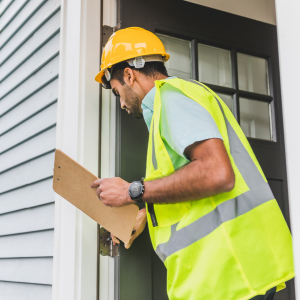
Understanding Real Estate Appraisals in Washington State
In Washington State’s real estate market, knowing the ins and outs of property appraisals is important for both buyers and sellers. Appraisals play a key role in the home buying process, as they determine a property’s market value and influence financing decisions.
Most of the time, the buyer pays the appraisal price, which is different for each property and depends on its size and complexity. Lenders need appraisals to protect their investment and make sure they don’t give more than the property is worth.
A licensed appraiser evaluates several factors, including location, condition, and recent comparable sales in the area. Getting an accurate appraisal is essential because it impacts both mortgage approval and price negotiations in Washington’s competitive housing environment.
Knowing who pays for what—and why—can have a real effect on financial planning during a property transaction in Washington.
Key Players in the Home Inspection Process
In Washington’s real estate scene, several key players are involved in the home inspection process—buyers, sellers, agents, and certified home inspectors. Typically, the buyer hires an inspector to thoroughly assess the property’s condition before making the purchase official.
The inspection helps find any problems or fixes that need to be done that could make the home less safe or less valuable. Real estate agents often help buyers by suggesting reliable testers and making it easier for everyone to talk to each other.
Sometimes, sellers opt to conduct inspections before listing their property to catch potential problems early and speed up negotiations. Occasionally, sellers might cover inspection fees as a negotiation strategy to attract more buyers.
In Washington’s fast-paced real estate market, open communication is very important because who pays can change based on market conditions and the terms of the deal.
Cost Breakdown of Property Appraisals and Inspections
Knowing who pays for appraisals and inspections is key for anyone buying or selling property in Washington. Typically, the buyer pays for both, with the appraisal often required by the lender to validate the loan amount.
Appraisals range from $300 to $600 depending on the property. Inspection costs, also usually paid by the buyer, cover evaluations of the home’s condition and may include specialized services like radon or pest inspections.
These inspection services typically start around $200, but can increase if extra assessments are needed. In hot markets, sellers might offer to cover these costs to attract buyers, though this is largely negotiated case-by-case.
Buyer Vs. Seller: Who Covers Appraisal Fees?
IIn Washington, the question of who pays for appraisal fees comes up often in real estate transactions. It’s standard for buyers to cover this cost, since lenders require an appraisal to verify the property’s value.
This helps ensure the loan amount is fair based on market conditions. However, negotiations sometimes result in sellers offering to pay the fee as part of a closing cost incentive.
In rare but highly competitive situations, sellers may choose to cover the appraisal cost to help close the deal more quickly. If you’re looking to sell your house fast in Washington, it’s essential to understand all financial responsibilities involved. Both buyers and sellers should carefully review the purchase agreement and consult with real estate professionals to clarify any cost-sharing arrangements and avoid surprises during the transaction.
Navigating Inspection Costs in Washington’s Real Estate Market

Understanding how inspection and appraisal costs are handled is important in Washington’s real estate market. Generally, buyers pay for inspections to assess the home’s condition and avoid surprises after closing.
Appraisals, typically required by lenders, are also paid by the buyer to confirm the home’s fair market value. However, there’s room to negotiate.
Sellers sometimes agree to cover certain inspection or appraisal costs as closing incentives. Real estate professionals are vital in helping clients work out these terms. Being aware of these costs from the beginning helps buyers plan ahead and avoid unexpected expenses.
The Role of Lenders in Home Appraisal Payments
IIn Washington, lenders play a crucial role in the appraisal process during mortgage approval. They order the appraisal to assess whether the property value supports the loan.
While the lender initiates the process, the buyer usually pays the appraisal fee upfront as part of closing costs. Some lenders, however, offer promotions or loan programs that include appraisal coverage to attract borrowers.
These offers vary widely by lender and loan terms, so it’s important for buyers to ask questions. Knowing how appraisal fees are handled can influence a buyer’s financing options and help with affordability planning.
Negotiating Inspection Fees During Home Purchase Agreements
In Washington, negotiating inspection fees can be a smart move during home purchase agreements. While buyers typically pay for inspections, they may negotiate for sellers to share or cover the cost.
Buyers could offer to pay for some fees or use repair results to get the seller to agree. In return, sellers might offer to pay for checks if it speeds up the process or helps them stand out in a crowded market.
Real estate professionals help clients set realistic expectations and handle these negotiations. Knowing how inspection costs can be shared can change the financial picture for both sides.
Impact of Appraisal Results on Property Sale Price
An appraisal can directly affect the final sale price of a home in Washington. If the appraised value matches or exceeds the agreed price, things usually move forward without issue.
If the evaluation is lower than expected, however, buyers might not want to go through with the deal, or sellers might have to lower their price to keep the deal alive. Lenders won’t give loans above the home’s estimated value, so financing may need to be looked at again.
Appraisal results can therefore shape both strategy and price negotiations, influencing the outcome in Washington’s competitive housing market.
Essential Checklist for a Smooth Home Inspection Process

Keep your Washington home buy on track by making sure the inspection process goes smoothly. As part of their due research and loan requirements, buyers usually pay for both the inspection and the appraisal.
Clear terms in the purchase agreement help prevent misunderstandings. Inspections should be scheduled right after mutual agreement to avoid delays.
A thorough review is guaranteed if you work with a qualified home inspector who knows the local rules. Making sure all the paperwork is in order and dates are met will protect buyers and help sellers close without any problems.
Comparing Home Inspection Services: What to Consider
If you live in Washington and need a home inspected, pick someone with good credentials and experience. A qualified inspector helps you spot potential problems before you commit to a property.
Check to see what the checkup covers; look for thorough checks of important systems like the HVAC and electrical. Prices are important, but don’t let them get in the way of quality.
Some inspectors offer extras like radon or pest checks for an additional cost. Fast report turnaround times are also helpful when decisions need to be made quickly. Choosing the right inspector means fewer surprises and smarter decisions.
How Geography Affects Appraisal and Inspection Costs in Washington

Where you live in Washington makes a big difference in how much a house costs. Due to higher demand and more complicated properties, inspections and evaluations often cost more in cities like Seattle.
In contrast, more rural areas tend to see lower prices for the same services. Travel time is also a factor—some professionals charge extra for remote properties.
Prices vary a lot in Washington because it has a mix of city, suburb, and country areas. That’s why location-specific planning is so important for people who want to buy or sell a home in this state.
Common Misconceptions About Real Estate Appraisals and Inspections
In Washington’s real estate market, several common misconceptions surround who bears the costs of appraisals and inspections, both of which are part of the costs of selling a house. These misconceptions often lead to confusion for buyers and sellers. Many believe that sellers are always responsible for covering these expenses, but this is not necessarily true.
In a real estate deal, the buyer usually pays for the assessment as part of the mortgage process to ensure that the loan amount is equal to the property’s value. On the other hand, buyers usually pay for inspections to assess the property before closing on a deal, but this can be worked out between the parties.
Another misconception is that appraisals and inspections serve identical purposes. While both are essential components of due diligence, an appraisal assesses property value, whereas an inspection evaluates its physical state. It’s crucial for participants in Washington’s dynamic real estate market to clearly communicate and understand these distinctions to avoid unexpected financial responsibilities or disputes during transactions.
Strategies for Reducing Out-of-pocket Expenses on Inspections
Managing out-of-pocket costs for appraisals and checks can have a big effect on a buyer’s budget in Washington’s real estate market. One good approach is to ask the seller to cover some or all of these costs. This works especially well in a competitive market where sellers may be more willing to work with you to close the deal.
Buyers can also consider seeking properties with existing inspection reports, which can eliminate the need for additional inspection expenses. Utilizing government-backed loan programs that offer appraisal reimbursements or credits is another way to alleviate financial pressure.
Additionally, working with a knowledgeable real estate agent who understands the local Vancouver market can provide helpful guidance on how to effectively reduce upfront costs. By exploring strategies such as negotiating closing costs or identifying off-market opportunities, prospective Washington homebuyers can ease their financial burden while still gaining a full understanding of their potential investment. For those looking to sell quickly, it’s worth noting that we buy houses cash in Vancouver, offering a faster, more straightforward alternative to the traditional selling process.
Timeline Expectations for Property Appraisals and Inspections
In Washington’s real estate market, understanding the timeline for property appraisals and inspections, including the appraisal timeframe before closing, is crucial for both buyers and sellers. The appraisal process typically begins after an offer is accepted, with lenders requiring a professional evaluation to ensure the property’s value aligns with the loan amount. The appraisal timeframe before closing can range from one to two weeks, depending on the appraiser’s workload and the complexity of the property.
This appraisal could take one to two weeks, depending on the appraiser’s workload and the complexity of the property. Home inspections are also often scheduled soon after the buying agreement is signed.
Buyers usually have a specified period in the contract, often seven to ten days, to complete these inspections and negotiate any necessary repairs with sellers. Coordinating these timelines efficiently helps prevent delays in closing transactions and ensures that any issues identified during inspections are addressed promptly.
Understanding who covers appraisal and inspection costs upfront—often negotiated between buyer and seller—can also influence how quickly these processes proceed within Washington’s competitive real estate landscape.
Legal Obligations for Buyers and Sellers Regarding Inspections
Understanding the legal duties of buyers and sellers when it comes to inspections is very important in Washington’s real estate market. Costs of home inspections, which are important for figuring out how good or bad a property is before finishing a deal, are usually covered by the buyer.
These inspections include checks for structural problems and pests, as well as sometimes more specialized checks like radon or mold tests. Sellers may choose to do a pre-listing inspection to find problems that might affect negotiations or the selling price, but they are not forced to do so by law.
The purchase agreement often outlines specific terms about who will bear the costs associated with these inspections. While buyers generally pay for their own inspection reports to ensure transparency and informed decision-making, both parties must agree on any repairs or credits based on the findings.
Real estate agents are very important because they help buyers and sellers understand their legal responsibilities and make sure that all processes related to inspections follow Washington state laws.
The Influence of Market Trends on Appraisal Values
In Washington’s real estate market, appraisal values are significantly influenced by current market trends. When the market experiences a surge in buyer demand and limited housing inventory, appraisal values typically increase, reflecting heightened property competition and rising home prices.
Conversely, in a cooling market with more available listings and fewer buyers, appraisal values may stabilize or even decrease. Economic factors such as interest rates also play a crucial role; lower rates often stimulate buyer interest and can drive up appraisals due to higher sales prices.
Improvements and new developments in the area can also affect home values by making neighborhoods more attractive. Both buyers and sellers need to understand these factors in order to figure out who pays for the appraisal costs in Washington state real estate deals.
Who Is Supposed to Pay for an Appraisal?
In Washington’s real estate market, the responsibility for covering appraisal costs typically falls on the buyer. An appraisal is a critical step in the home-buying process as it helps determine the fair market value of a property.
Lenders require an appraisal to ensure that they are not lending more than the property’s worth. Therefore, buyers usually pay for the appraisal upfront as part of their closing costs.
In a real estate deal, both the buyer and the seller can discuss the terms, but buyers usually pay this fee. If owners know who pays for appraisals, they can better plan for the costs that come with buying a home in Washington’s competitive real estate market.
Knowing these financial obligations beforehand allows for smoother transactions and more informed decisions during the home buying process.
How Much Does an Appraisal Cost in Washington State?
The cost of an evaluation in Washington State’s real estate market depends on a number of things, such as the type of property, where it is located, and how complicated it is. Most of the time, buyers and sellers of single-family homes pay between $400 and $800 for a typical appraisal.
However, unique properties or those located in remote areas may incur higher appraisal costs. It’s important for buyers and sellers to understand that these appraisal fees are generally covered by the buyer as part of the closing costs, although this can sometimes be negotiated during the buying process.
Lenders need appraisals to make sure that the loan amount asked is equal to the value of the property. Anyone buying or selling a home in Washington must know who pays for these costs because they affect total budgeting and financial planning during the transaction.
Who Is Typically Responsible for Paying for the Home Inspection?
In Washington’s real estate market, the responsibility for paying for the home inspection typically falls on the buyer. When purchasing a home, the buyer generally arranges and pays for a professional home inspection to assess the property’s condition before completing the transaction.
Assisting the buyer in finding any problems or fixes that might be needed is an important step that helps them make an informed choice. Although sellers may offer to pay for these costs as an incentive or as part of talks, especially in a competitive market, buyers usually have to pay for them.
The costs associated with home inspections can vary based on factors such as property size and location within Washington, but ultimately, they serve to protect the buyer’s investment by providing detailed insights into the home’s structural integrity and systems.
Who Pays the Closing Cost in Washington State?
In Washington State’s real estate market, understanding who pays the closing costs, including appraisal and inspection fees, is crucial for both buyers and sellers. Typically, closing costs encompass a variety of fees such as loan origination charges, title insurance, escrow fees, and taxes.
To be clear, there is no hard and fast rule in Washington about who pays these costs, but owners usually pay most of them. However, discussion is a big part of figuring out how these costs will be split in the end.
The assessment fee is usually paid for by the buyer to find out how much the property is worth and make sure it matches the loan amount. Similarly, sellers usually pay for inspections because they want to find any problems with the property before they finalize the deal.
If the market is right and talks go well, sellers may agree to help pay some of the closing costs or make other concessions. Anyone buying or selling a home in Washington needs to understand these factors in order for the closing process to go smoothly.
Sell With Isaac buys homes and other properties in any condition with cash throughout Vancouver without our clients worrying about cleaning, repairs, lenders, investors, or related expenses. Ask Us About Our No-Obligation Competitive Cash Offer for Houses Today!
Helpful Washington Article
- Leading Washington Property Managers For Exceptional Real Estate Services
- Who Pays for Appraisal and Inspection in Washington
- Selling A House With A Pending Lawsuit in Washington
- Can You Sell A House That Failed Inspection in Washington
- Can You Put A Lien On A House in Washington
- Does A Seller Pay Closing Costs in Washington
- How to Stop Unsolicited Offers to Buy My House in Washington
- Tax Implications of Selling a Home in Washington
- What Happens to My Escrow When I Sell My House in Washington
- How to Sell an Investment Property in Washington
- Sell Home to Pay Off Debt in Washington
- Can Someone Sell My House Without My Consent in Washington?
- Guide to Selling Your Washington House with a Squatter

| REAL ESTATE APPRAISERS | MORTGAGE LENDING | MORTGAGE LENDER | HOME LOANS | CONVENTIONAL MORTGAGE | MORTGAGE RATES |
| THE STATE OF WASHINGTON | REALTORS | REFINANCING | REFINANCE | HOUZEO | ESCROW SERVICES |
| MONEY | HOME INSURANCE | HOMEOWNERS | SAMMAMISH | SAMMAMISH MORTGAGE | INSURANCE POLICY |
| HEATING AND COOLING | FHA | EARNEST MONEY | EARNEST MONEY DEPOSIT | DOWN PAYMENT | DATA |
| BLOG | BANK | PROPERTY TAXES | FINANCES | EQUITY | |
| DEED | CASH | BETTER BUSINESS BUREAU | BBB | AVERAGE | A HOME APPRAISAL |
| VALUE OF THE | THE HOME APPRAISAL | IN WASHINGTON THE | THE PROPERTYS VALUE | A HOME INSPECTION | HOME APPRAISAL IN WASHINGTON |
| THE HOME APPRAISAL PROCESS | A HOME INSPECTION IS |
